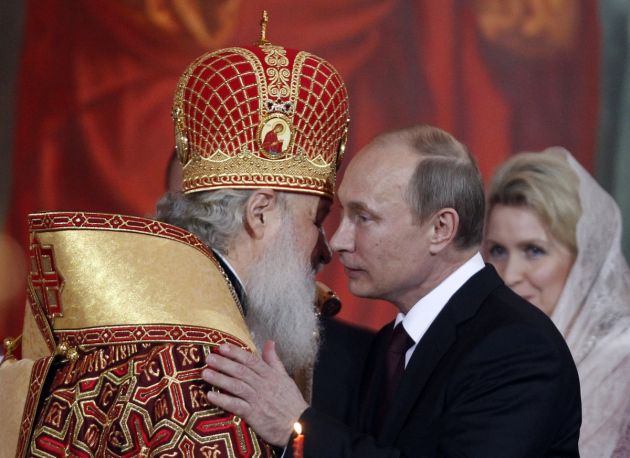Russians return to religion, but not to church, surveys find

Russian President Vladimir Putin was outraged when the feminist punk rock group Pussy Riot staged a protest concert in Moscow's Cathedral of Christ the Savior on February 21, 2012.
The women said their protest was directed at the Orthodox Church leader's support for Putin during his election campaign.
Putin, who was once an officer in the secret service organization, the KGB, which upheld the atheist Soviet State, was reviled by the protest and so were the Orthodox hierarchy.
Members of the band were jailed, revealing that the attitude of the State to religion in Russia had changed dramatically in the post-Soviet era.
The attitude of Russians to religion has also changed significantly as data released by the U.S.-based Pew Research Center on Monday shows.
Over the past 20 years, since the collapse of the Soviet Union, there has been an upsurge in affiliation with Orthodox Christianity in Russia, but this attachment is not matched in church attendance.
Pew Research Center has released analysis of three waves of data (1991, 1998 and 2008) from the International Social Survey Programme (ISSP).
Between 1991 and 2008, the share of Russian adults identifying as Orthodox Christian rose from 31 percent to 72 percent the survey program released by Pew on Monday found.
The program was a collaboration involving social scientists in about 50 countries.
During the same period, the share of Russia's population that does not identify with any religion dropped from 61 percent to 18 percent.
The share of Russian adults identifying with other religions, including Islam, Protestant Christianity and Roman Catholicism, rose in the 1990s and then leveled off.
In Russia growing religious affiliation is seen across a variety of demographic groups.
For example, the share of Russia's female population identifying as Orthodox Christians increased by 38 percentage points between 1991 and 2008, while the share of women with no religious affiliation declined by 36 points.
Among Russian men the changes have been even more pronounced; 63 percent of them identified as Orthodox Christians in 2008, up 46 percentage points since 1991, while the share of Russian men who espoused no religious affiliation declined by 52 points over the same period.
The survey notes that estimates of the size of Russia's Muslim population vary.
The most recent ISSP survey finds that Muslims make up 5 percent of Russia's population, but other surveys and studies have somewhat higher estimates.